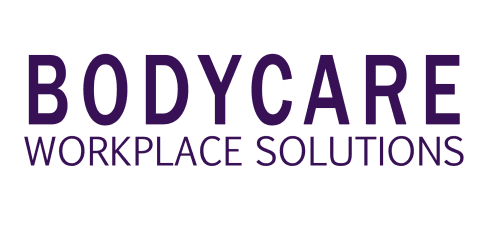The Importance of Emotional Intelligence in the Workplace
Work might be the last place we associate emotional intelligence with. This is because it clashes with the more traditional notion that ‘getting personal’ or involving any element of emotion interferes with productivity. But the workplace is actually one of the places where we need emotional intelligence most.
Emotional intelligence is at the core of everything from our feelings of self-motivation to our empathy for others. Thus, it impacts every aspect of our work, from how we collaborate with our colleagues to how well we understand the needs of our clients or customers.
This is why some workplaces now offer emotional intelligence tests as part of the interviewing and recruitment process, or emotional intelligence resources and courses as part of ongoing improvements to workplace culture. When you improve emotional intelligence, you become better at communicating with others, making decisions, and solving problems.
What is emotional intelligence?
Emotional Intelligence (EI) refers to the ability to identify and handle personal emotions effectively in oneself and others. It recognises that all humans, including our colleagues, clients, and customers, are social beings. While personal matters are typically kept separate from professional settings, they are an intrinsic aspect of the human experience. Acknowledging this and encouraging the demonstration of EI skills can help employees manage their daily interactions more effectively, both within and outside professional settings.
Why is emotional intelligence important in work settings?
Research has shown that having a strong level of emotional intelligence enhances a person’s ability to make sound decisions, establish and maintain collaborative relationships, manage stress effectively, and cope better with constant change. This means that individuals with a higher level of EI are better equipped to deal with the challenges of daily life, enabling them to not only perform well in the workplace but also achieve their personal goals and objectives.
This valuable attribute is widely recognised by effective leaders in the workforce, as it is critical for interpersonal communication and stress management. Furthermore, studies have found that EI is a more reliable predictor of overall success than intellect, as measured by intelligence quotient (IQ). This is why some employers value emotional intelligence testing as part of their hiring process.
How is emotional intelligence used in the workplace?
Emotional Intelligence is an integral part of the various workplace interactions that occur on a daily basis and plays a significant role in interpersonal functioning.
Individuals with higher emotional intelligence are better at taking the time to understand different perspectives to facilitate the establishment of common ground in discussions or disagreements. For example, with good active listening skills during meetings, they will:
- Listen carefully to colleagues’ contributions
Refrain from interrupting others
Seek clarification on concepts
By observing how others interact and recognising the value of everyone’s input, this type of intelligence promotes a sense of being heard, which fosters harmony and a willingness to compromise for the benefit of the team.
Emotional intelligence is also crucial for conflict management in the workplace. This may include:
- Assisting others in navigating tense situations
Tactfully addressing disagreements
Identifying solutions that are acceptable to all parties involved
What are the five elements of emotional intelligence?
To implement emotional intelligence in the workplace, individuals must first recognise and manage their own emotions. This involves a process of self-reflection and self-awareness. Renowned psychologist Daniel Goleman identified five critical aspects of this process, which he referred to as the five elements of emotional intelligence.
Self-Awareness
Developing self-awareness is a crucial aspect of emotional intelligence as it involves recognising and understanding one’s own emotions. However, self-awareness goes beyond just acknowledging personal emotions. It also involves being mindful of how one’s actions, moods, and emotions impact others.
To cultivate self-awareness, you must be capable of monitoring your own emotions, recognising different emotional responses, and accurately identifying specific emotions. When you are self-aware, it means you are also mindful of the relationship between your emotions and your behaviour.
In the workplace, self-awareness creates the ability to navigate a wider range of social interactions effectively. When you can better manage your emotions and responses to others, your habits will encourage positive outcomes in your professional relationships and your work.
Self-Regulation
Self-regulation is not about suppressing your emotions or hiding your true feelings. Instead, it involves managing emotions in a way that allows you to express them at the appropriate time and place. When you are able to express emotions appropriately, it can enhance your flexibility and adaptability to change. It is also very beneficial in managing conflicts and diffusing tense or challenging situations.
In work settings, self-regulation allows you to approach situations with a level head and respond in a constructive manner. It can also improve your ability to collaborate effectively with others, build stronger relationships, and achieve your personal and professional goals.
Motivation
Intrinsic motivation is another critical component of emotional intelligence. Individuals who exhibit intrinsic motivation are driven by a deep-seated passion to fulfill their inner goals and needs, rather than external rewards such as money or recognition.
Intrinsic motivation can benefit the workplace in several ways. Employees who are intrinsically motivated are more likely to be committed to their work and to take ownership of their responsibilities. They tend to be more innovative and creative, as they are driven by a desire to achieve personal fulfilment rather than simply meeting external expectations.
Intrinsic motivation can also contribute to a positive and collaborative workplace culture, as employees who are passionate about their work may be more likely to inspire and support their colleagues. By fostering intrinsic motivation in the workplace, organisations can create a more engaged and productive workforce.
Empathy
Empathy is a key element of emotional intelligence, as it involves not only recognising the emotions of others, but also responding to them appropriately. It requires a deep understanding of how others are feeling, and the ability to adjust one’s behaviour accordingly. For instance, if you notice that someone is feeling down, you may take extra care to show compassion or offer encouragement to uplift their spirits.
Empathy has numerous benefits in the workplace. It promotes better communication and understanding between colleagues, leading to stronger relationships and a more positive work environment. By showing empathy, employees can build trust with their coworkers and develop a sense of teamwork that allows for more effective collaboration.
Empathetic leaders are also often more successful at managing conflict, as they are able to see multiple perspectives and work towards finding mutually beneficial solutions. By prioritising empathy in the workplace, organisations can foster a culture of compassion and understanding that benefits both employees and the company as a whole.
Social Skills
Social skills are an important component of emotional intelligence as they are critical to effective interpersonal communication. Active listening, effective verbal and non-verbal communication, and persuasive abilities are all part of social skills. The application of social skills requires a deep understanding of both our own and others’ emotions in different contexts, which can lead to genuine emotional understanding.
Social skills in the workplace are especially important for managers as they allow them to build relationships and connections with employees. Workers also benefit from developing connections with each other and building a strong rapport with their managers and leaders.
Strong social connections can also benefit the organisation as a whole. When employees feel connected to their co-workers and managers, they are more likely to communicate openly and work collaboratively to achieve common goals. This sense of camaraderie and shared investment in the success of the business can foster a strong sense of loyalty among employees, leading to lower turnover rates and increased commitment to the organisation. Thus, building teams with strong social skills in the workplace can have a significant impact on the overall success and growth of the business.
Improve emotional intelligence in your workplace
Are you looking to improve communication, management, problem-solving, and relationships in your workplace? Emotional Intelligence can help with that. Even if EI doesn’t come naturally to everyone, the good news is that the key emotional competencies can be trained and developed to improve professional and personal performance. Don’t miss out on this opportunity to boost your team’s effectiveness. Call today to learn more about how Bodycare can help improve emotional intelligence in your organisation.



